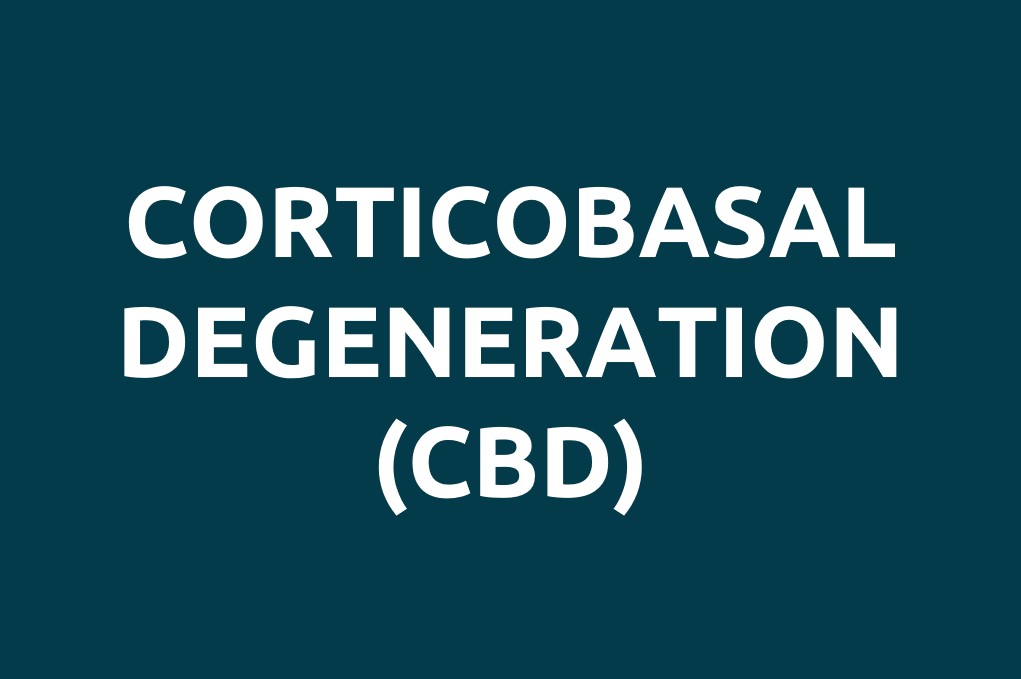

What is Corticobasal Degeneration (CBD)?
Corticobasal Degeneration (CBD) is a rare, progressive neurodegenerative disease. It was first identified in 1968. The disease typically starts between ages 60 and 70. CBD is a complex disease with a wide variety of symptoms and signs.
What Are the Symptoms of CBD?
CBD usually affects one side of your body much more than the other. Common symptoms include:
- Slowing movement and stiffness of the neck, arms and legs
- Balance and walking problems that may cause falls
- Muscle twitches or jerks, called myoclonus
- Difficulty performing common arm or leg movements
- Sensation loss on one side or trouble identifying things by touch
- A feeling that your hand has a mind of its own, sometimes called ”alien limb”
- Difficulties with speech and language, such as trouble finding the right words
- Behavioral changes such as loss of motivation, personality changes, or irritability
Several types of CBD have been identified according to the main symptoms. CBD symptoms can overlap with other more common neurological diseases. That is why neurologists often use the term corticobasal syndrome rather than CBD.
What Are the Causes?
The cause of CBD is unknown. CBD causes an abnormal brain aging process that progresses over time. Healthy people have a protein called tau in their brains. It is important for normal neuron function. But people with CBD have an abnormal tau protein that builds up in the brain. It appears to damage nerve cells and other brain cells in certain areas. Researchers do not know why this tau protein is abnormal in CBD. CBD is not hereditary. It has not been linked to any environmental exposures.
How is it Diagnosed?
The diagnosis is based on your medical history and neurological examination. Because CBD signs and symptoms may be similar to other diseases, such as Parkinson’s disease, it can be difficult to diagnose in the early stages. Even later on, diagnosis can be difficult. Sometimes the diagnosis is only made by autopsy. Scans like magnetic resonance imaging (MRI) are often useful. Imaging may rule out other diseases that may mimic CBD. Imaging may also find specific patterns of brain shrinkage, called atrophy. There are no blood tests for the diagnosis.
Is There a Treatment for CBD?
There is no effective treatment to slow CBD progression. However, some symptoms can sometimes be treated. Depending on your symptoms, your doctor may try:
- Levodopa to improve slow movement
- Medications to manage the myoclonus
- Botulinum toxin injections to decrease arm or leg stiffness in certain muscles
- Other targeted medications for urinary problems, anxiety, depression, cognitive problems etc.
- Physiotherapy, occupational therapy and/or speech therapy to help maintain your function
